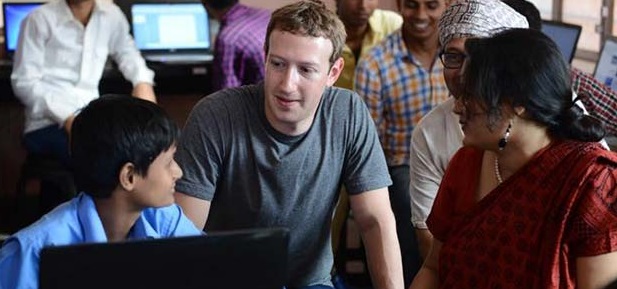ADRIAN NARAYAN WRITES — With more than 15 million users in 24 countries, Facebook’s Internet.org, has charmed the eyes of many Indians. The program aims to bring free Web access to the developing world, but because of controversy over the number of websites a user can visit, the project’s been renamed “Free Basics.”
Even with the change, this project took plenty of criticism on social media after experts questioned the intentions of Facebook on the grounds of net neutrality. Net neutrality, for those who are unfamiliar with the term, is the idea that Internet access providers should give customers equal access to all content. Facebook argues that, for those without web access, being able to get some services is better than none at all (while Facebook CEO Mark Zuckerberg still says he supports net neutrality).
Free Basics has partnered with Reliance Communications—India’s no. 4 telecom—so their customers can use Facebook’s “free basics” services. These include access to Facebook and Facebook Messenger, and sites like Wikipedia, BBC News, Bing Search, Dictionary.com, and local news services.
Zuckerberg defends his intentions over the new program and is working to adjust issues and confront potentially false criticism. While it seems that the open internet allows for equality amongst it users, Free Basics allows Facebook to be the gatekeeper of what its users actually can view.
According to the New York Times, the Telecom Regulatory Authority of India is considering potential regulations. The agency’s chairman, Ram Sewak Sharma, was doubtful of Internet.org. “Maybe they have wonderful objectives, but the way it is being implemented, that’s not really appropriate,” he commented.
The trouble with Free Basics is that it’s not completely open — Facebook allows publishers and developers to submit their services and content to the platform, but reserves the right to reject them. That’s not what the internet is about.
Although Zuckerberg may be right when he mentions that universal access is more important than net neutrality, that’s not to say these principles can’t be taken too far. His argument only makes sense if there are no alternatives to offering a zero-rating service.
The Internet and Mobile Association of India reported that 52 million Indian citizens got online in just the first half of 2015. Free Basics has the potential to divide this growing number of internet users into those who access the open Web and those who access Free Basics (which consists of Facebook’s partnered telecom providers such as Reliance Communications in India).
Campaigns like Save the Internet have gathered a million Indians to petition government officials to stop Internet.org and to create rules protecting net neutrality. This isn’t just an India-based issue – dealing with how zero-rating plans on cellular networks control the services that people are able to use is a global one.
As many Indians continue to petition over Free Basics initiatives in India, Zuckerberg still thinks that it will serve India well. Free Basics hurts Facebook’s competition in all developing countries where it is growing and hampers innovation. This is a two-way street: either Zuckerberg had this vision all along or doesn’t understand this. Whichever way you slice it, this isn’t healthy for India. Free Basics offers Facebook loopholes to profit from bringing users and services onto its own platform and Zuckerberg won’t admit it.


5